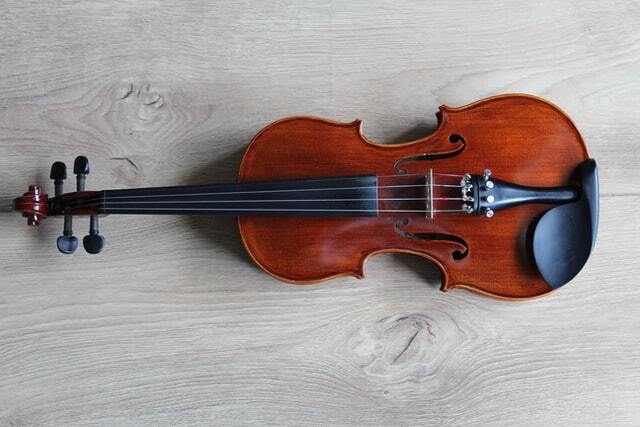
If you are preparing to put your things away during the
winter months, you should know that things are a tad bit more complicated than
they might be during other times of the year. Winter is, after all, a
challenging season due to its weather and frequent low temperatures. It means
that your items would require additional considerations to safely make it
through the storage period. To help you ensure your items are safe and sound,
we have prepared seven winter storage tips for your perusal!
The first of our winter storage tips is to make sure
everything that is packed away is clean. Realistically speaking, whatever you
are putting away would not be used for a while. It means that if you allow it
to go into storage dirty, it will likely be in a much worse state when you
finally take it out again. Equipment can rust or develop jamming problems due
to this. And clothing can even start developing mold, which would almost
certainly permanently ruin it. Rather than risk never being able to use your
belongings again, it is better to put them away properly!
A reliable storage
provider will warn you that certain items require climate-controlled
storage space. An excellent example of this is musical instruments, appliances,
and pieces of furniture. Instruments are often made of delicate materials, and
any shrinking due to the cold could easily cause warping or cracking or parts
due to their fragile nature or tension. Furniture is most often made of wood
and can be equally sensitive to temperature change. Meanwhile, appliances
require temp-controlled storage for two different reasons. First, they can
quickly develop wiring problems that would later cause them to short out due to
condensation. And, secondly, they can rust, warp or crack in the cold.

Just like
instruments, a lot of items that require climate control are costly, so you
want them safe!
The moving and storage experts from Strong-Ass Movers warn that you should always use plastic boxes and storage containers! The reason for this is simple: they seal better, they are not susceptible to mold, and they are much sturdier. They could mitigate the effects of cold weather by preventing the formation of condensation on the items you have stored inside them. And you would not need to worry about the packaging itself rotting, molding, or breaking. Even if it seems like it would not matter in a secure storage unit, they would still at least get dusty and dirty. Not to mention the chance of spilling out of the box and falling off a shelf.
Of course, it is equally important to dry everything you've
washed or rinsed off thoroughly before storing it away. Since we are talking
about winter storage, not taking the time to do this can have dire
consequences. The cold can make the leftover moisture freeze, which, in turn,
can cause warping, cracking, or a whole host of other issues. Then are the
usual risks of leaving wet items in storage. Namely, rusting, molding, and
developing a very unpleasant scent that can last through several washing cycles
later. The associated risks entirely outweigh the little extra bit of time you
would get from immediately throwing them into storage.
If you put away clothing, it is always good to use vacuum
sealing bags! Such bags can be bought cheaply online or even in most variety
stores. And they come with several benefits! First, vacuum sealing your
clothing will keep it fresh and free of any sign of dust or dirt. Second, it
will be beneficial for getting more space. One of the top reasons
people rent self-storage is a lack of space in their homes. Yet, the vacuum
bags eliminate all air and make the package much smaller than it would be in a
box or a regular suitcase. Finally, best-quality vacuum bags are relatively hardy
and entirely immune to mold. It means it would be harder to damage your
clothing by accident, and you would not need to worry about it developing mold
in storage.

You can use a special
machine or vacuum cleaner to suck the air out of vacuum bags.
You need to take several precautions when placing your equipment into storage. Firstly, when moving, you would be looking into the different types of moving estimates. That way, you can be familiar with the estimates of what professional help for relocating your equipment would cost. More importantly, you have to look for tips for moving and storing equipment. When preparing different pieces for storage, the critical step is draining all the fuel before putting them away. This is doubly important when it comes to winter storage tips! After all, while leaving fuel in would only cause minor issues during warmer months, you risk dire consequences in winter. The fuel can freeze and cause irreparable damage to your equipment.

You can have packing
supplies delivered to you!
The final of our winter storage tips is to always store the
same items together. Since such things share the same traits, you would gear
the packaging towards what they need to stay safe in storage. Some might need
extra padding, for example. You can place as many others as you dare inside a
storage container without special precautions. This particular practice also
comes with the added benefit of easy labeling! So, you would always know what
each box contains. Of course, there are some things you should
not put into storage, no matter how carefully you package or sort them.
Now that you are familiar with our seven winter storage
tips, you should be ready to safely put your belongings away! Just remember to
also carefully consider your choice of a storage facility. Ensure it has proper
security and storage conditions and is a convenient distance away, especially
if you often plan to check on your items.